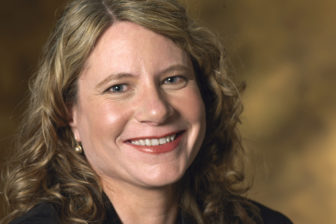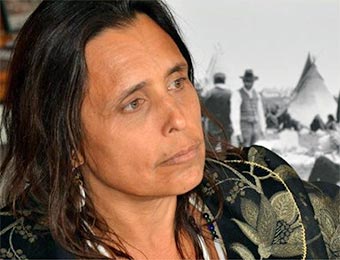April 7 webinar event to discuss state’s climate justice actions
March 27, 2020

J. Drake Hamilton

Nicole Eknitphong

Winona LaDuke
The College of Saint Benedict and Saint John’s University is hosting “Solve Climate by 2030: Climate Solutions for Minnesota” from 5-7 p.m. on Tuesday, April 7, via webcast.
The event will identify three ambitious but feasible climate justice actions that are already underway in Minnesota. All of these actions contribute to our ability to significantly reduce greenhouse gas emissions by 2030.
There is no cost for the event. You can register here to access the event, or you can go to the Environmental Studies page on the CSB/SJU website.
People can also access information here.
Solve Climate by 2030 features 52 simultaneous, university hosted webinars - one in every state, plus the District of Columbia and Puerto Rico. The two-hour event begins with webinars from 5-6 p.m., followed by 45 minutes of community dialogue.
The panelists (via recorded video) for the Minnesota presentation are:
- J. Drake Hamilton, science policy director of Fresh Energy, the St. Paul-based organization whose mission is to shape and drive realistic, visionary energy policies that benefit all;
- Nicole Ektnitphong, statewide organizing and training director for the Minneapolis-based MN 350, which unites Minnesotans as part of a global movement to end the pollution damaging our climate, speed the transition to clean energy and create a just and healthy future for all;
- Winona LaDuke, a two-time vice presidential candidate with the Green Party’s Ralph Nader in 1996 and 2000 who is the program director of Honor the Earth, working on the issues of climate change, renewable energy and environmental justice with Indigenous communities. LaDuke delivered the keynote address at the annual Peace Studies Conference in September 2019 at CSB and SJU.
Why is 2030 a key date in the discussion? The world’s top climate scientists have said we have a 10-year window to make rapid reductions in the carbon pollution causing global warming. If we don’t, we will severely destabilize the global climate, leading to extreme weather, droughts, floods and sea-level rise that will be increasingly hard for humans to manage.
The event is hosted by the Environmental Studies Department, in collaboration with the Sustainability Alliance; The Eugene J. McCarthy Center for Public Policy and Civic Engagement; the Institute for Women’s Leadership; the Climate Justice Club; CSB Sustainability; and SJU Sustainability.
